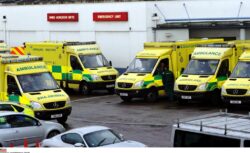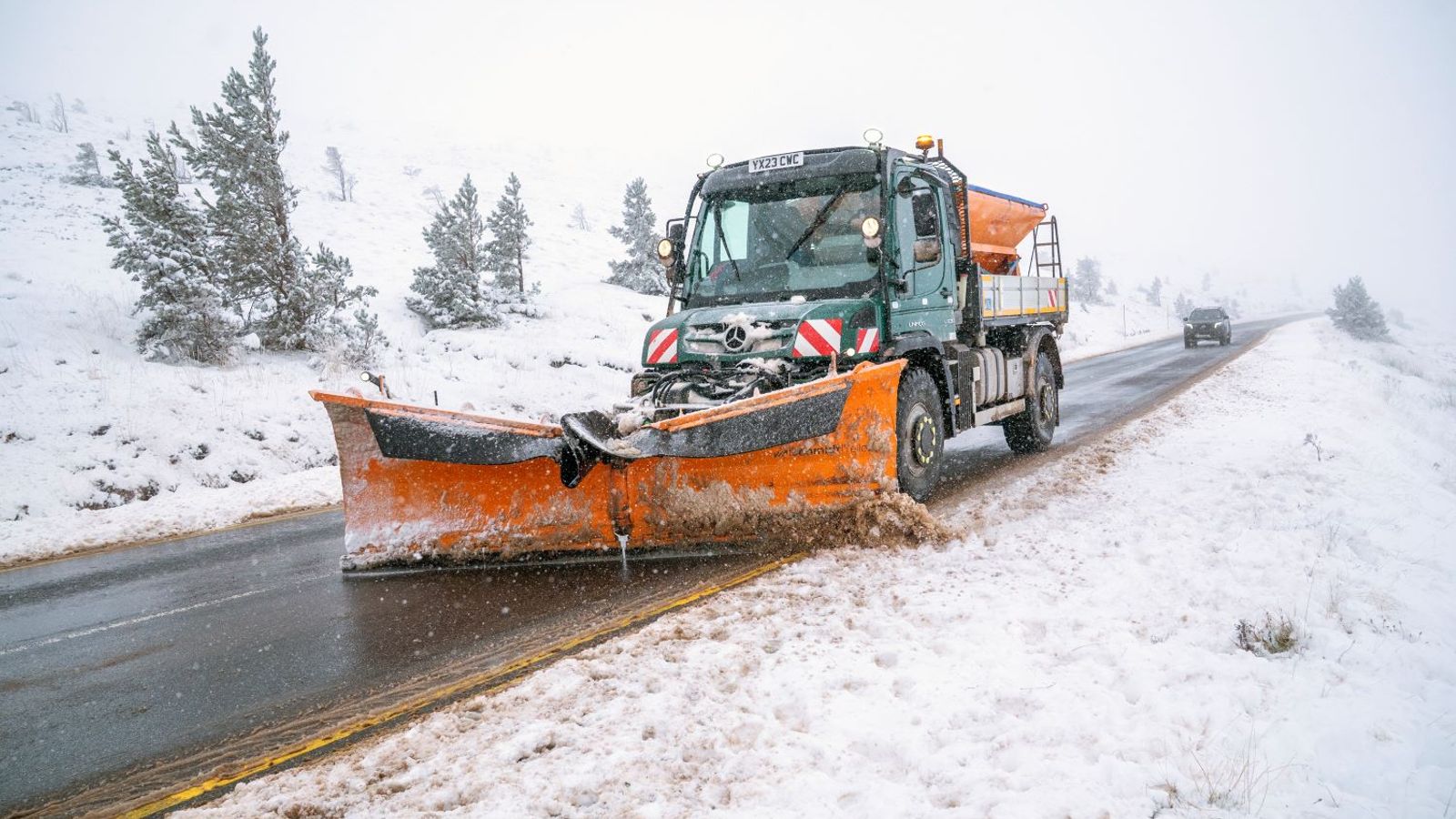Ambulances parked up outside the accident and emergency department of UHW, University Hospital of Wales, Cardiff (Picture: Media Wales)
The Welsh Ambulance Service issued a ‘black alert’ this weekend warning that they were overwhelmed and advising people to ‘make their own way’ to hospital if they could.
It was in place from Saturday night until early this morning, when it was lifted at 4.07am.
The alert is officially known as a ‘business continuity incident’, known by many as a ‘black alert’ as it means the service is unable to keep-up with demand for emergency medical care and support.
More than 2,000 emergency 999 calls were made Saturday, including 200 ‘immediately life-threatening red calls’.
Plus, NHS 111 Wales received more than 10,000 calls over the same period, in what was the ‘busiest day ever’ for the service.
It came as icy weather conditions across West Wales, the M4 and the Valleys exacerbated issues, while lengthy delays at hospitals meant demand for the ambulance service ‘exceeded its capacity to respond’.
As a result, some patients had to wait hours for an ambulance.
An ambulance struggling through snow in Hampstead, London, today (Picture: Alamy Live)
Lee Brooks, Director of operations at Wales Ambulance Service, said declaring such an incident is ‘rare’ and management ‘do not take the decision lightly’.
In a statement released yesterday, a spokesperson for the Welsh Ambulance Service siad: ‘The Welsh Ambulance Service has overnight declared a ‘business continuity incident’ due to demand across our 999 and 111 services. Demand on the service increased throughout Saturday and Sunday morning, and despite the measures we can take, we have been unable to stem this demand.
‘More than 2,000 emergency 999 calls were presented to us yesterday, a 17% increase on last week, and we responded to more than 200 immediately life-threatening red calls, while NHS 111 Wales received over 10,000 calls, the busiest day ever for the service.
‘Icy weather conditions affecting West Wales, Heads of the Valleys, and the M4, have not helped our ability to respond. This, coupled with lengthy delays at hospitals across Wales, meant that demand on the service exceeded its capacity to respond.
‘As a result, some patients have waited, and regrettably continue to wait for many hours for an ambulance. The Trust has put special arrangements in place to manage demand, including asking some patients to make an alternative arrangement, such as making their own way to hospital.’
Executive director of operations, Lee Brooks added: ‘It’s rare that we declare a business continuity incident and we do not take the decision lightly. Extreme weather, coupled with a high call volume focused on falls and breathing issues overnight, has limited our capacity to respond safely and timely.
‘We are sorry to everyone who has had to wait longer for their calls to be answered, and subsequently wait longer for an ambulance to arrive. I can’t thank our staff and volunteers enough for doing all they can in challenging times.’
Concern about Strep A
Mr Brooks went on to offer medical advice to parents whose children are showing possible symptoms of Strep A, a potentially-dangerous bacterial infection that has led to the deaths of 15 children in the UK since September.
He said: ‘It is understandable parents are cautious when children show possible symptoms of Strep A. The best place to start if you are concerned is our website where information about symptoms and what to do can be found.
Mr Brooks added: ‘111 is very busy and demand for those aged under 12 is very high. Please bear with us as we will get to these calls as quickly as we can.
‘Only call 999 or go to A&E if:
Your child is having difficulty breathing – you may notice grunting noises or their tummy sucking under their ribs
There are pauses when your child breathes
Your child’s skin, tongue or lips are blue
Your child is floppy and will not wake up or stay awake
‘For anything else, please only call 999 in a life-threatening emergency – that’s a cardiac arrest, chest pain or breathing difficulties, loss of consciousness, choking, or catastrophic bleeding.
‘If the situation is not a life-threatening emergency, then it’s important that you use one of the many alternatives to 999, starting with the symptom checkers on our NHS 111 Wales website as well as your GP, pharmacist and Minor Injuries Unit.’
Get in touch with our news team by emailing us at [email protected].
For more stories like this, check our news page.
It came as NHS 111 Wales received more than 10,000 calls, in what was the ‘busiest day ever’ for the service.





